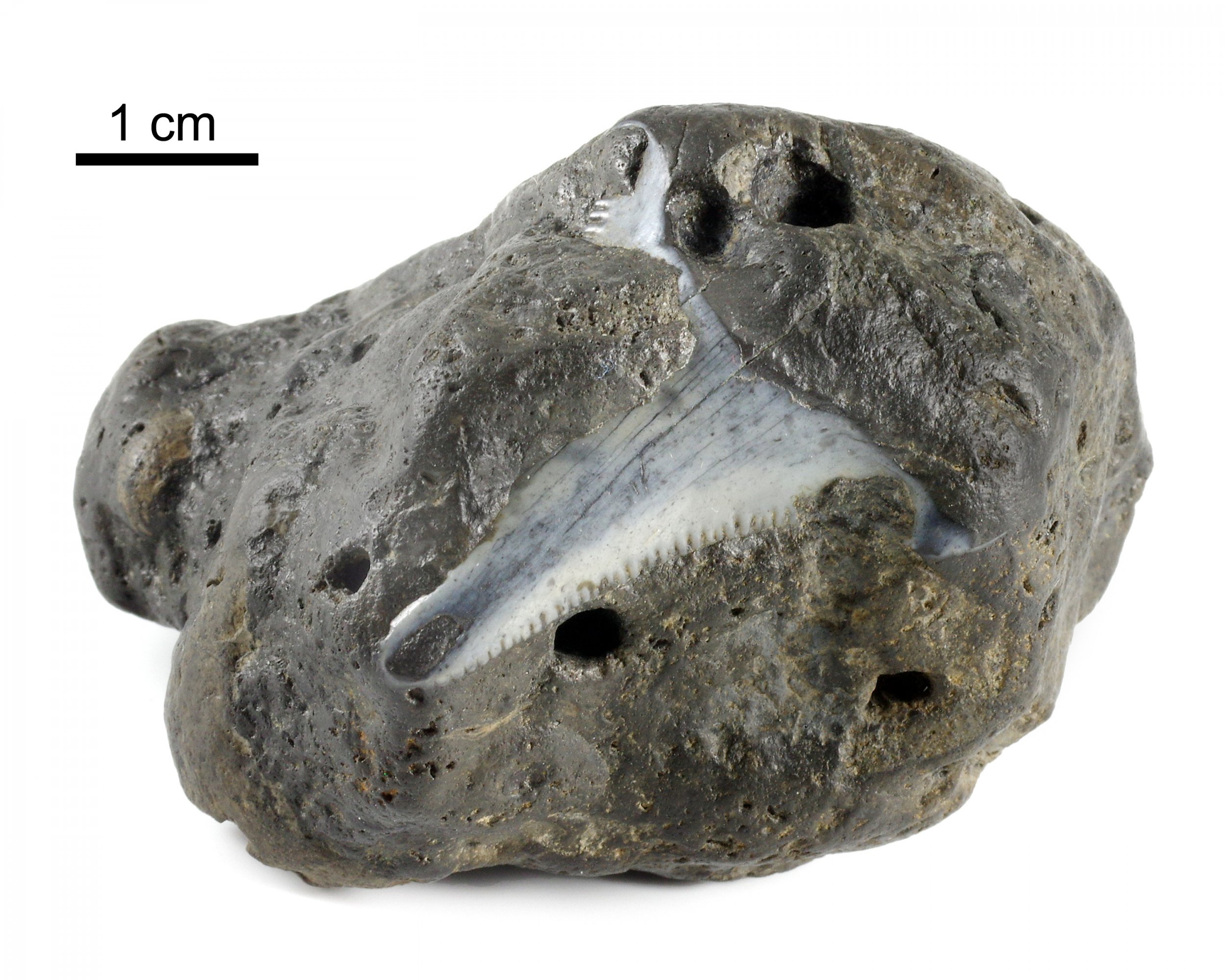
There are stories in scat, and this piece of poo tells a tale of a giant shark's attempt to eat it.
Professional diver Mark Stitzer was diving near Charleston, South Carolina looking for megalodon teeth in October when he found the tooth of Carcharocles angustidens, a giant shark related to the famous C. megalodon. This tooth, however, was embedded in some sort of fossilized feces. The fossil contained a story of regret.
Stitzer told George Frandsen, curator of the "Poozeum," about his find. The Poozeum holds the Guinness World Record for the largest collection of coprolites, or feces fossils in the world. Stizer figured that the shape of the specimen meant that the shark tooth was embedded in a coprolite.
"When [Stitzer] first told me, I thought no, this is not possible," Frandsen told Newsweek. "That's not something that's ever been seen or heard of. I had a hard time believing it."
But as soon as Stitzer sent pictures of the specimen, Frandsen knew that it was, in fact, crocodile poop with bite marks and a tooth that the shark lost in the attempt to eat it. This is evidence of "aborted coprophagy," or when an animal starts to eat feces and then stops.
"Sharks are known to be scavengers, and [the poo] probably smelled fishy or interesting to the shark that bit it," Frandsen told Newsweek. "And then [the shark] released it once it found it was not a tasty fish."
Frandsen, who lives in Florida, is familiar with the feces of crocodilians, and knew that it was a crocodile turd he had in his hands. He also knew that the tooth didn't end up in the scat just because the crocodile had not just eaten the shark (or part of it), because bite marks on the other side of the poop specifically show impressions of an attempt to eat it.

However, this doesn't mean that sharks intentionally eat poo. Samantha Leigh, a shark researcher at University of California, Irvine, told Earth Touch News Network that she's never heard of a shark that intentionally eats feces.
Frandsen bought the specimen from Stiltzer in December, and added it to the Poozeum. This collection of poo fossils travels to different museums for display, and it will be at the Florida Museum of Natural History from January 27 to May 6. Among all the specimens, this is the only one with a tooth in it.
Uncommon Knowledge
Newsweek is committed to challenging conventional wisdom and finding connections in the search for common ground.
Newsweek is committed to challenging conventional wisdom and finding connections in the search for common ground.
About the writer
Kristin is a science journalist in New York who has lived in DC, Boston, LA, and the SF Bay Area. ... Read more





